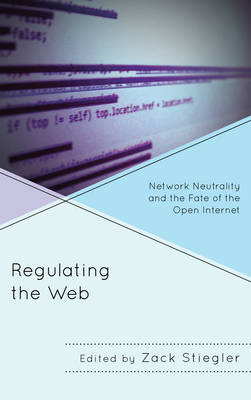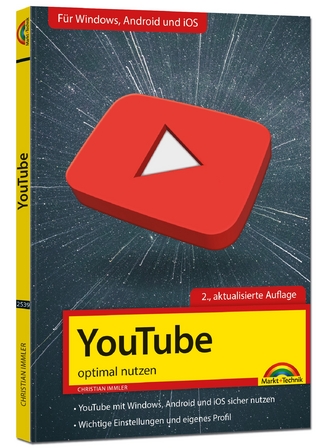
Regulating the Web
Lexington Books (Verlag)
978-0-7391-7868-3 (ISBN)
Since its popularization in the mid 1990s, the Internet has impacted nearly every aspect of our cultural and personal lives. Over the course of two decades, the Internet remained an unregulated medium whose characteristic openness allowed numerous applications, services, and websites to flourish. By 2005, Internet Service Providers began to explore alternative methods of network management that would permit them to discriminate the quality and speed of access to online content as they saw fit. In response, the Federal Communications Commission sought to enshrine “net neutrality” in regulatory policy as a means of preserving the Internet’s open, nondiscriminatory characteristics. Although the FCC established a net neutrality policy in 2010, debate continues as to who ultimately should have authority to shape and maintain the Internet’s structure. Regulating the Web brings together a diverse collection of scholars who examine the net neutrality policy and surrounding debates from a variety of perspectives. In doing so, the book contributes to the ongoing discourse about net neutrality in the hopes that we may continue to work toward preserving a truly open Internet structure in the United States.
Zack Stiegler is assistant professor of communications media at Indiana University of Pennsylvania.
Regulating the Web: An Introduction
Zack Stiegler
Part I: Background and Principles1
Chapter 1: Visions of Modernity: Communication, Technology and Network Neutrality in Historical Perspective
Michael Felczak
Chapter 2: What We Talk About When We Talk About Net Neutrality: A Historical Genealogy of the Discourse of Net Neutrality
Danny Kimball
Chapter 3: Transparency, Consumers, and the Pursuit of an Open Internet: A Critical Appraisal
Jeremy Carp, Isabella Kulkarni, and Patrick Schmidt
Chapter 4: Applying Common Carriage to Network Neutrality
Pallavi Guniganti and Mark Grabowski
Part II: Institutional Perspectives
Imagining Equilibrium: The Figure of the Dynamic Market in the Net Neutrality Debate
Daniel Faltesek
Chapter 6: Axiology and the FCC: Regulation as Ideological Process
Benjamin Cline
Part III: Net Neutrality as Cultural and Political Debate
Chapter 7: Framing the Net Neutrality Debate
Zack Stiegler and Dan Sprumont
Chapter 8: Informationism as Ideology: Technological Myths in the Net Neutrality Debate
Brian Dolber
Part IV: Socio-Cultural Implications
Chapter 9: A Critical Theory of Technology Approach to the Study of Network Neutrality
Tina Sikka
Chapter 10: Network Neutrality, Mobile Networks, and User-Generated Activism
Michael Daubs
Chapter 11: Beyond the Series of Tubes: Strategies for Advancing Media Reform
John Nathan Anderson
| Co-Autor | John Nathan Anderson, Jeremy Carp, Benjamin Cline, Michael Daubs |
|---|---|
| Verlagsort | Lanham, MD |
| Sprache | englisch |
| Maße | 161 x 235 mm |
| Gewicht | 526 g |
| Themenwelt | Mathematik / Informatik ► Informatik ► Web / Internet |
| Sozialwissenschaften ► Kommunikation / Medien ► Kommunikationswissenschaft | |
| Sozialwissenschaften ► Kommunikation / Medien ► Medienwissenschaft | |
| ISBN-10 | 0-7391-7868-7 / 0739178687 |
| ISBN-13 | 978-0-7391-7868-3 / 9780739178683 |
| Zustand | Neuware |
| Haben Sie eine Frage zum Produkt? |
aus dem Bereich


